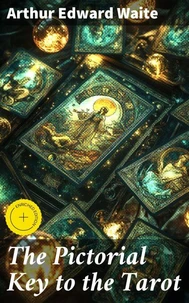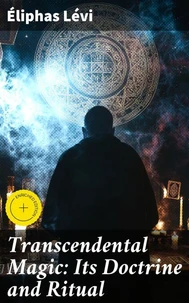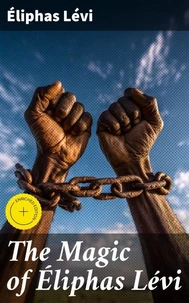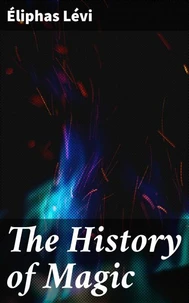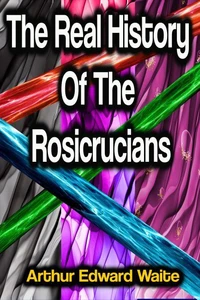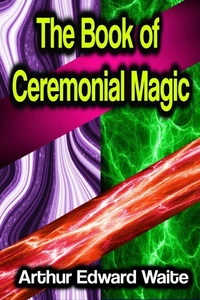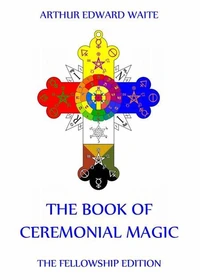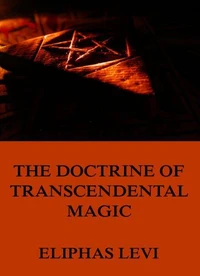Devil - Worship in France; or, The Question of Lucifer. Unveiling the Mysteries of Luciferian Cults in France
Par :Formats :
Disponible dans votre compte client Decitre ou Furet du Nord dès validation de votre commande. Le format ePub est :
- Compatible avec une lecture sur My Vivlio (smartphone, tablette, ordinateur)
- Compatible avec une lecture sur liseuses Vivlio
- Pour les liseuses autres que Vivlio, vous devez utiliser le logiciel Adobe Digital Edition. Non compatible avec la lecture sur les liseuses Kindle, Remarkable et Sony
 , qui est-ce ?
, qui est-ce ?Notre partenaire de plateforme de lecture numérique où vous retrouverez l'ensemble de vos ebooks gratuitement
Pour en savoir plus sur nos ebooks, consultez notre aide en ligne ici
- Nombre de pages223
- FormatePub
- ISBN4057664641557
- EAN4057664641557
- Date de parution25/11/2019
- Protection num.Digital Watermarking
- Taille652 Ko
- Infos supplémentairesepub
- ÉditeurGOOD PRESS
Résumé
In "Devil-Worship in France; or, The Question of Lucifer, " Arthur Edward Waite delves into the complex relationship between occult practices and sociopolitical structures in 19th-century France. This meticulously researched work blends historical analysis with a descriptive literary style, examining how the enigmatic figure of Lucifer has been perceived across various cultural and religious contexts.
Waite critically engages with a wealth of primary sources, contributing to a nuanced understanding of devil-worship that transcends mere sensationalism, and situating it within the broader framework of European esotericism and spiritualism. Arthur Edward Waite, an influential scholar and mystic, was deeply entrenched in the study of the occult, freemasonry, and mysticism. His fascination with hidden knowledge and spiritual truths is evident in his extensive body of work.
Waite'Äôs unique background, heavily influenced by his membership in various esoteric societies, informed his exploration of religious dualities and the historical evolution of devil-worship, ultimately leading him to address the controversial themes presented in this book. For scholars of religion, history, and esotericism alike, Waite's "Devil-Worship in France" is an indispensable text that not only illuminates the dark corners of historical belief systems but also invites readers to ponder the intricate interplay between light and darkness in the human experience.
This book is a profound exploration that rewards those seeking a deeper understanding of these enduring themes.
Waite critically engages with a wealth of primary sources, contributing to a nuanced understanding of devil-worship that transcends mere sensationalism, and situating it within the broader framework of European esotericism and spiritualism. Arthur Edward Waite, an influential scholar and mystic, was deeply entrenched in the study of the occult, freemasonry, and mysticism. His fascination with hidden knowledge and spiritual truths is evident in his extensive body of work.
Waite'Äôs unique background, heavily influenced by his membership in various esoteric societies, informed his exploration of religious dualities and the historical evolution of devil-worship, ultimately leading him to address the controversial themes presented in this book. For scholars of religion, history, and esotericism alike, Waite's "Devil-Worship in France" is an indispensable text that not only illuminates the dark corners of historical belief systems but also invites readers to ponder the intricate interplay between light and darkness in the human experience.
This book is a profound exploration that rewards those seeking a deeper understanding of these enduring themes.
In "Devil-Worship in France; or, The Question of Lucifer, " Arthur Edward Waite delves into the complex relationship between occult practices and sociopolitical structures in 19th-century France. This meticulously researched work blends historical analysis with a descriptive literary style, examining how the enigmatic figure of Lucifer has been perceived across various cultural and religious contexts.
Waite critically engages with a wealth of primary sources, contributing to a nuanced understanding of devil-worship that transcends mere sensationalism, and situating it within the broader framework of European esotericism and spiritualism. Arthur Edward Waite, an influential scholar and mystic, was deeply entrenched in the study of the occult, freemasonry, and mysticism. His fascination with hidden knowledge and spiritual truths is evident in his extensive body of work.
Waite'Äôs unique background, heavily influenced by his membership in various esoteric societies, informed his exploration of religious dualities and the historical evolution of devil-worship, ultimately leading him to address the controversial themes presented in this book. For scholars of religion, history, and esotericism alike, Waite's "Devil-Worship in France" is an indispensable text that not only illuminates the dark corners of historical belief systems but also invites readers to ponder the intricate interplay between light and darkness in the human experience.
This book is a profound exploration that rewards those seeking a deeper understanding of these enduring themes.
Waite critically engages with a wealth of primary sources, contributing to a nuanced understanding of devil-worship that transcends mere sensationalism, and situating it within the broader framework of European esotericism and spiritualism. Arthur Edward Waite, an influential scholar and mystic, was deeply entrenched in the study of the occult, freemasonry, and mysticism. His fascination with hidden knowledge and spiritual truths is evident in his extensive body of work.
Waite'Äôs unique background, heavily influenced by his membership in various esoteric societies, informed his exploration of religious dualities and the historical evolution of devil-worship, ultimately leading him to address the controversial themes presented in this book. For scholars of religion, history, and esotericism alike, Waite's "Devil-Worship in France" is an indispensable text that not only illuminates the dark corners of historical belief systems but also invites readers to ponder the intricate interplay between light and darkness in the human experience.
This book is a profound exploration that rewards those seeking a deeper understanding of these enduring themes.


